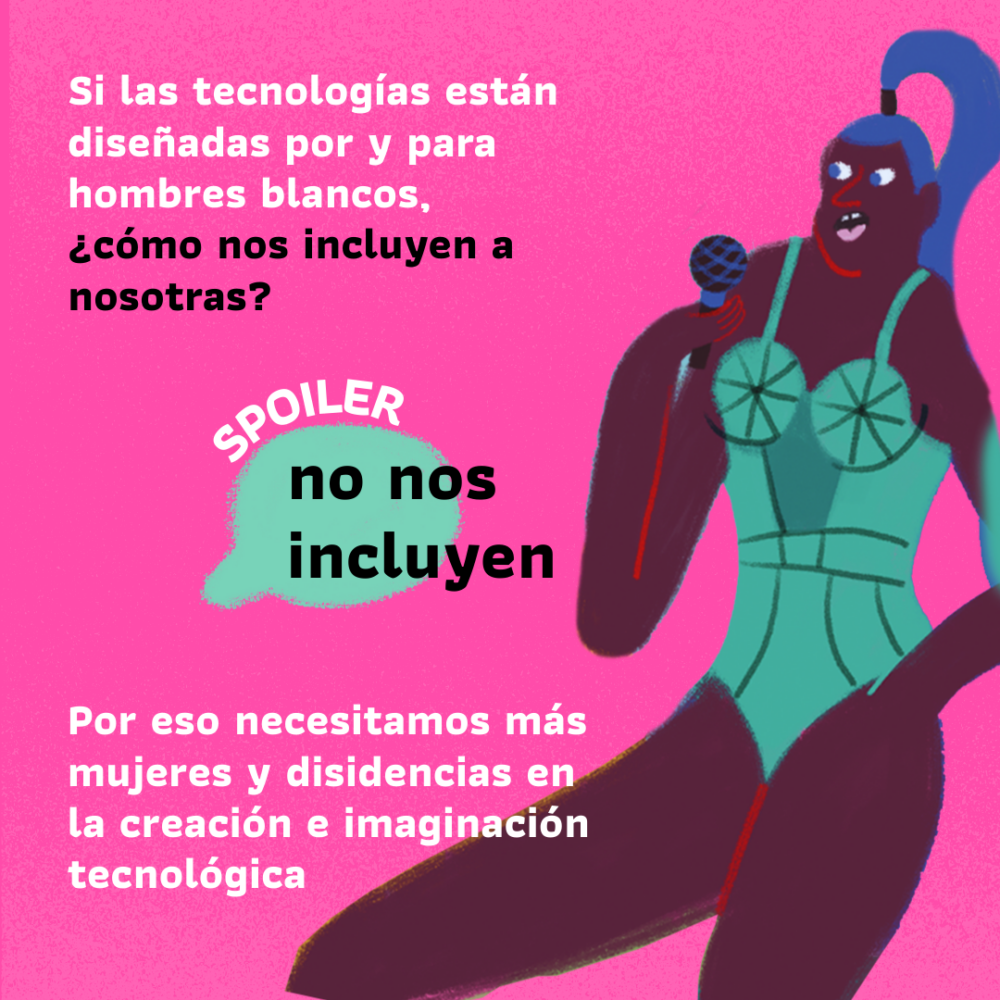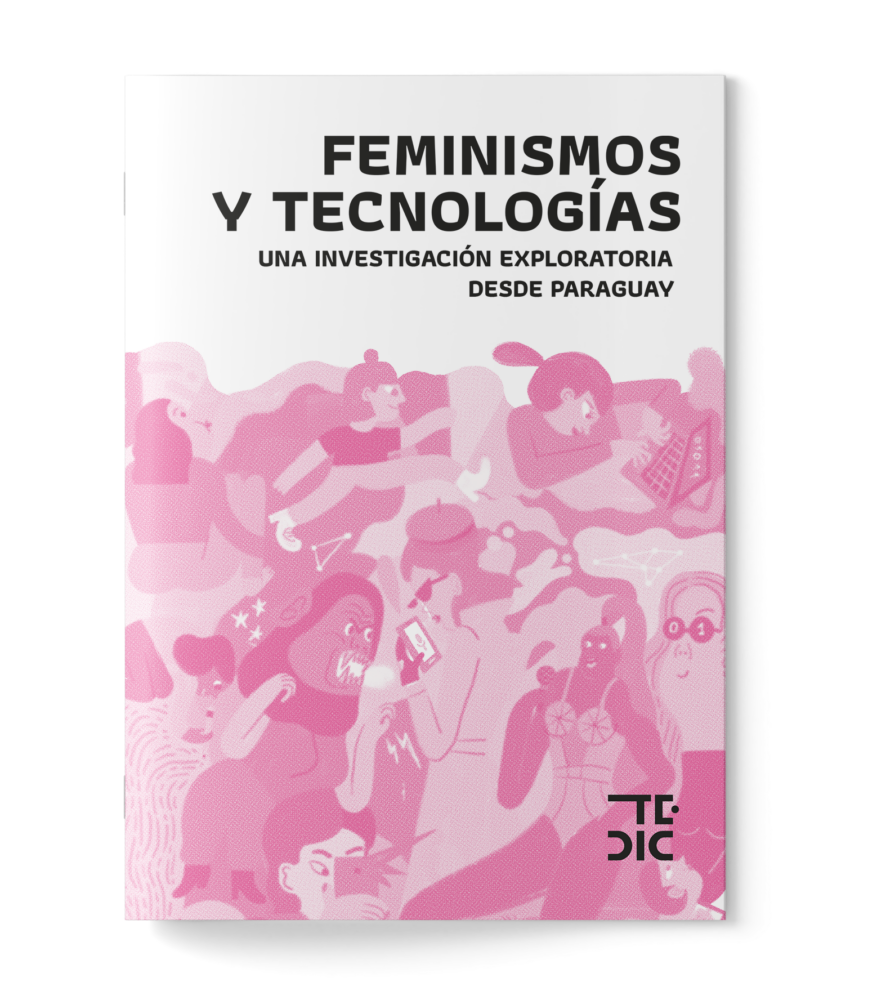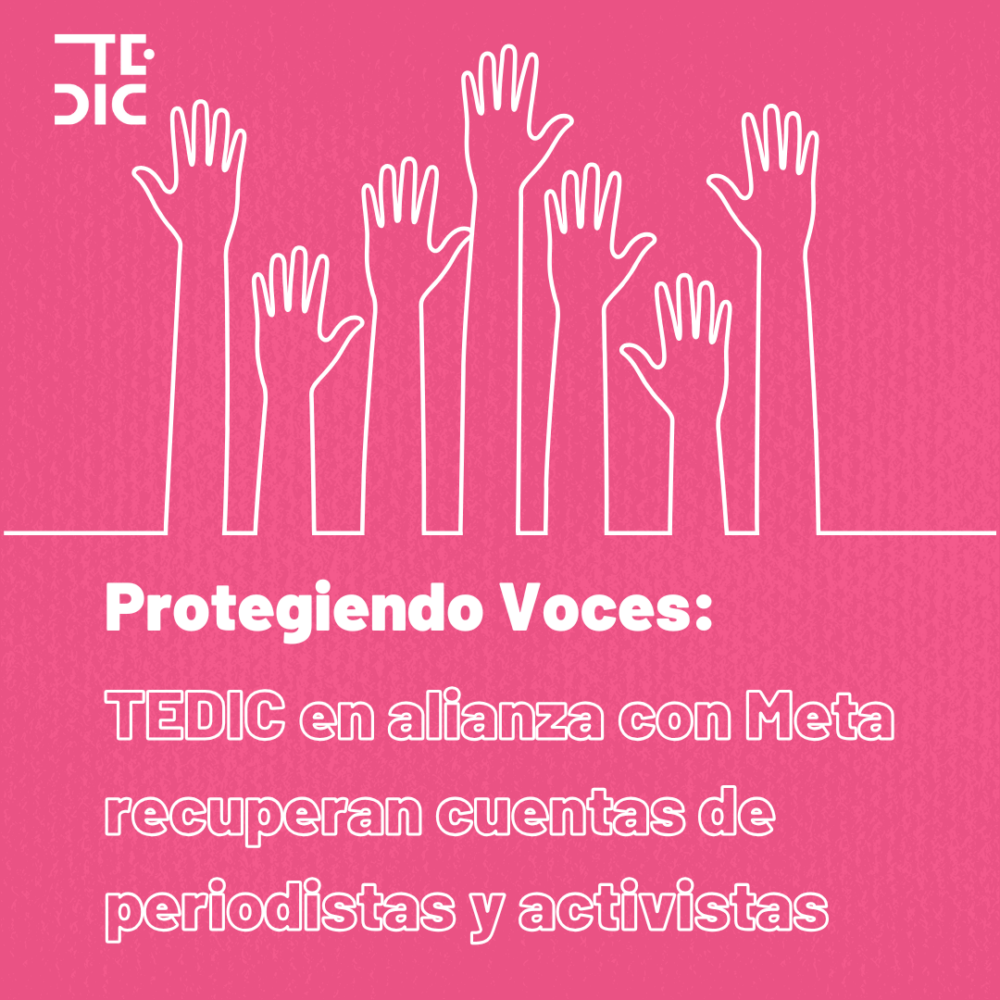
When we think about “technology,” we often imagine cables, screens, and massive data centers. Rarely do we think about our bodies, our territories, or the long history of feminist struggle.
But in our latest research, we invite you to look at the digital world from a different perspective: one where the technical is also political, and where the feminist is deeply technological.
From TEDIC and the Paraguayan Association of Feminist Researchers (APIF), we’re launching Feminisms and Technologies: An Exploratory Research from Paraguay, a project built around a vital but often overlooked question:
How does feminist experience intersect with the world of technology in a country like ours?
What’s personal is political… and also digital
For decades, feminist movements have questioned the power structures that shape our lives. This time, the focus is on technology—how it’s designed, who gets to design it, from what contexts, and which inequalities it reproduces or could transform.
This research shows that thinking about technology from a feminist perspective means rethinking the gender, class, race, and power dynamics that permeate not only the devices we use but also the ways we use them.
Technology is not neutral. That’s why it’s urgent to challenge its design and development.
Why is this research important?
In Paraguay, there are almost no studies that link feminism and technology from a critical, intersectional lens. And although we’re often led to believe that “technology” is a topic for engineers or male “experts,” the truth is that all of us are deeply affected by its impact.
From how we communicate to how we work, raise children, or resist—technology is part of it all.
The authors — Montserrat Fois, Verónica Villalba, and Jazmín Sánchez — offer a perspective from the Global South that highlights a crucial idea: technology doesn’t just matter—it’s inhabited, challenged, and redefined from our territories.
How was the research carried out?
This study combined theoretical and documentary review with semi-structured interviews conducted with people from feminist and tech sectors in Paraguay—including activists, academics, and professionals.

These interviews not only provided rich input for analysis, but also became a way to recognize, validate, and make visible situated knowledge—the kind that is often excluded from mainstream tech conversations.
Additionally, the research mapped initiatives, collectives, and experiences that connect gender and technology through activism, education, technical production, and digital rights advocacy.
The goal wasn’t to exhaust the topic, but to open a path for future systematization, research, and collective action.
What does a feminist lens bring?
A feminist and intersectional lens on technology helps us to:
• Question the idea that access alone is enough, without looking at development and usage conditions.
• Identify how current technologies reproduce inequalities based on gender, race, and class.
• Value situated knowledge and local experiences in contrast to technocratic or extractive approaches.
• Propose alternatives grounded in collaboration, technological autonomy, and social justice.
Existing forms of resistance
The research also uplifts the voices of women and gender-diverse people who are already contesting the digital terrain in Paraguay and across the region.
From peasant communities building agroecological networks, to digital activists confronting online violence, and scientists challenging the gender gap in STEM—these stories show that resistance is alive and expanding.
In a hostile political and economic context, where public policy remains slow to address digital inclusion, these forms of resistance gain even more power and meaning.
As the study says, “digital technologies are not separate from our bodies, or from the land we inhabit.”
From Paraguay, for the Global South
One of the most valuable contributions of this research is its ability to connect local, regional, and global struggles.
From the concept of body-territory to critiques of the coloniality of power—and its digital face: technological coloniality—this document becomes a theoretical and practical tool to think about digital sovereignty from a feminist and Latin American perspective.
It also proposes key paths for future action:
• Strengthening networks between feminist and tech organizations
• Promoting public policies with a gender perspective in the digital sphere
• Creating open-access technofeminist repositories
• Developing collaborative research on algorithmic bias
• Launching communication campaigns to push for digital justice
• Investing in gender-aware tech education
Key findings that raise new questions
Some of the most important findings include:
• The absence of gender-sensitive public policies in the tech field
• Limited access for women and gender-diverse people to careers and spaces in tech development
• The invisibilization of the work of activists, technicians, and researchers in the tech sector
• The urgent need to produce knowledge from the South, rooted in local resistance—not imported or extractive models
The research also reveals that while technofeminist experiences exist in Paraguay, they are not always labeled as such.
This invites us to recognize that the intersection of feminisms and technologies is not always explicit—but it is constant, diverse, and growing.
What’s next?
At TEDIC, we believe this study is just the beginning.
A call to keep weaving networks, creating more just technologies, and rethinking how we relate to the digital world.
Because we don’t want technologies that reproduce the same old inequalities and violence we’re already fighting.
We want technologies built with care, autonomy, and the power to transform.
You can read the full report in spanish on and share it with your community.
Because when we talk about technology, we’re also talking about rights, justice, and possible futures.

 Defending those who defend us
Defending those who defend us